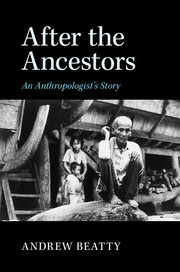Book contents
- Frontmatter
- Epigraph
- Contents
- List of illustrations
- Preface
- People
- Map
- Prologue
- 1 The statue
- 2 House key
- 3 Among women
- 4 Blood brothers
- 5 Daggers and debutants
- 6 Stormy Sunday
- 7 Three things that matter
- 8 The making of great men
- 9 A game of chess
- 10 Cholera song
- 11 Progress
- 12 Brothers and strangers
- 13 Exile and return
- 14 Field work
- 15 The chicken's neck
- 16 Good deaths and bad deaths
- 17 First family
- 18 Blessing
- 19 Half an egg
- 20 Waiting
- 21 Death of a chief
- 22 Ama Jonah at bay
- 23 Unravelling
- 24 The ethnographer and his double
- Epilogue
- Index
9 - A game of chess
Published online by Cambridge University Press: 05 March 2015
- Frontmatter
- Epigraph
- Contents
- List of illustrations
- Preface
- People
- Map
- Prologue
- 1 The statue
- 2 House key
- 3 Among women
- 4 Blood brothers
- 5 Daggers and debutants
- 6 Stormy Sunday
- 7 Three things that matter
- 8 The making of great men
- 9 A game of chess
- 10 Cholera song
- 11 Progress
- 12 Brothers and strangers
- 13 Exile and return
- 14 Field work
- 15 The chicken's neck
- 16 Good deaths and bad deaths
- 17 First family
- 18 Blessing
- 19 Half an egg
- 20 Waiting
- 21 Death of a chief
- 22 Ama Jonah at bay
- 23 Unravelling
- 24 The ethnographer and his double
- Epilogue
- Index
Summary
After the owasa in Hoya, it rained continuously for two weeks. The sky closed in and the hills vanished in mist. The rain fell so hard that it bounced off the paving stones in a thick rippling layer that dragged on the feet like an ebbing tide. The view from our perch was strangely tranquillizing: incessant rain, brown puddles leaking into bigger pools, the odd chicken, head down, racing for cover; and once, tiptoeing down the middle path, only his legs visible, a schoolboy, cowled under a huge green banana leaf like a gigantic insect.
Activity moved to the margins either side of the drowned square as the dry spaces under the eaves became walkways and grunting pig-runs. The village shrank into itself. Roof flaps were lowered, the tempo of life changed. Those with fields across the Susua could do nothing but remain at home, staring out in damp resignation. It was impossible to go down to the river to wash: not only could you be swept away, but the cold, dirty water brought out a skin rash. Disbelieving, I tried and duly suffered.
The rain was untiring, eternal. You could only watch and wonder. How could there be so much water up there in the sky? Where did it come from? Was there a drought in the rest of the world? We put buckets under the roof: they filled in seconds. Even speech became impossible. But where conversation failed, laughter could still break through the roar – the laughter of children dancing and shrieking under gushing spouts, and of women washing under roof cascades, their pots and pans drumming in front of them. Only the pigs were unhappy.
But our house was dissolving. The grey sago-thatch, already past its three-year cycle, had turned black and was dripping onto the floor-boards. I asked Ama Zinga for help and watched nervously as he climbed into the rafters twenty feet above us to replace the damaged panels.
- Type
- Chapter
- Information
- After the AncestorsAn Anthropologist's Story, pp. 131 - 144Publisher: Cambridge University PressPrint publication year: 2015

